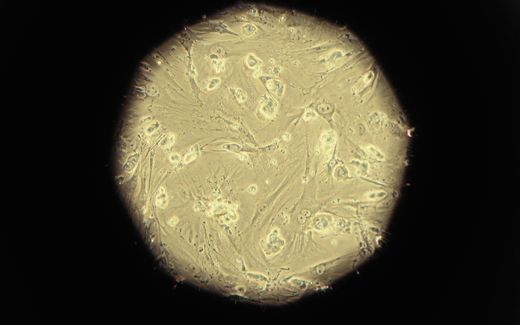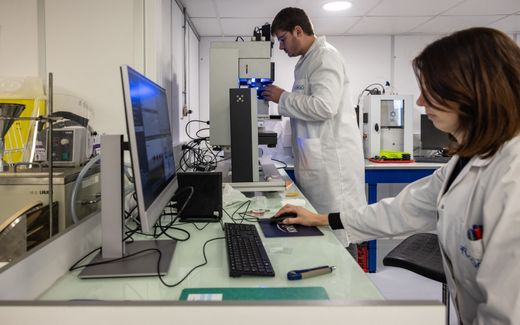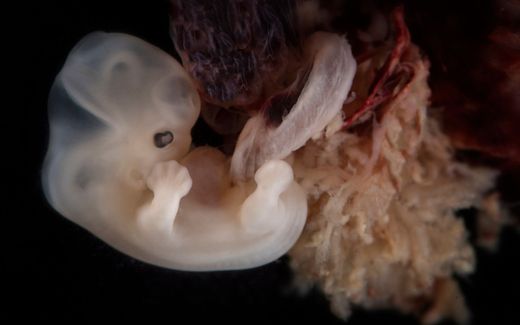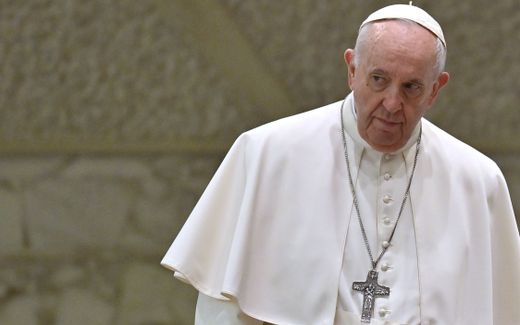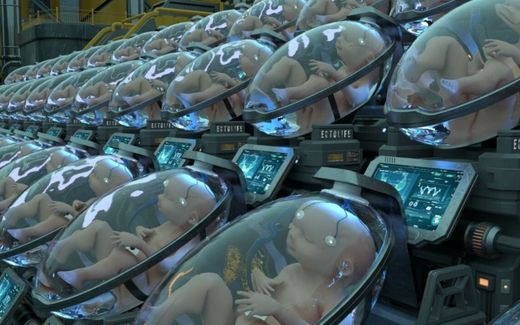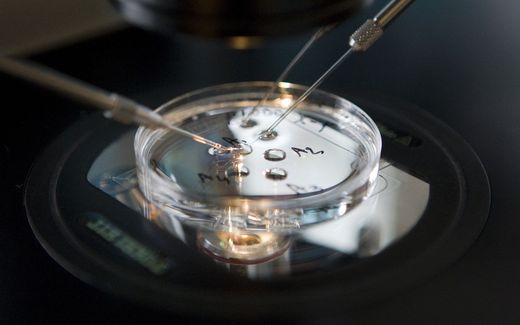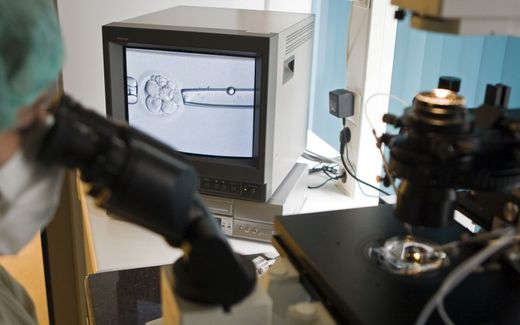Why embryos and donor sperm remain on the negotiating table
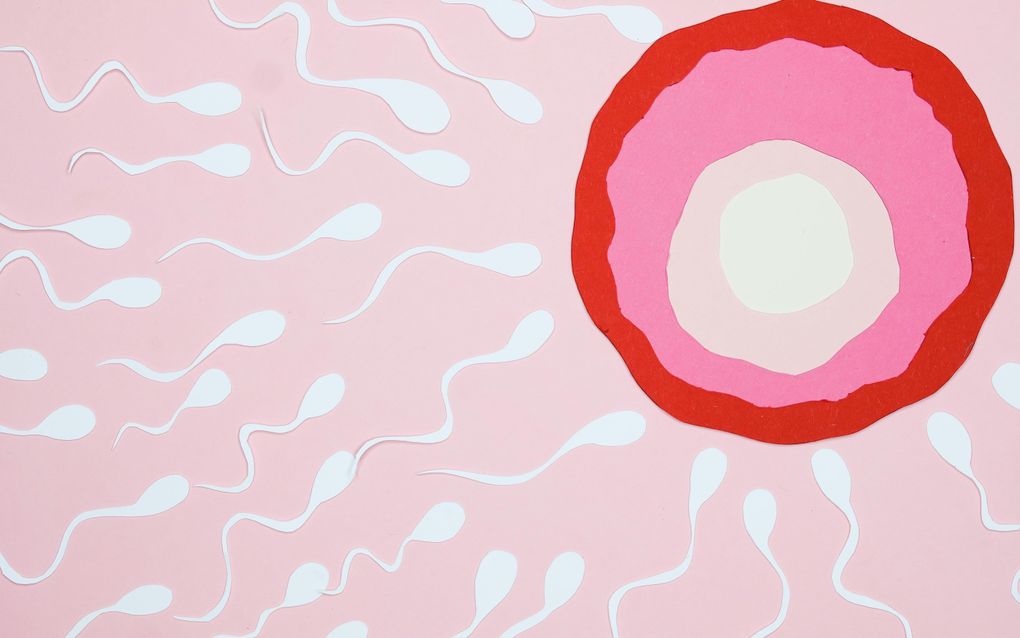
Photo Pexels, Nadezhda Moryak
European Union
Last year in February, the US state of Alabama surprised Europe and the rest of the world. Frozen embryos should be deemed as children.
It was the state's highest court that ruled that frozen embryos made within the process of assisted reproductive technologies (ART) should be deemed as offspring.
The move came after an IVF clinic's break-in that led to the destruction of frozen embryos for three couples, as mentioned by a Johns Hopkins report on the issue. The state court ruling led to IVF clinics pausing treatments for their patients and a lengthy legal battle that is left unfinished.
Will a similar scenario play out in Europe, where embryos used in ART might be considered as children? And will donor sperm or eggs that are used to make embryos continue to be profit-based? One Member of the European Parliament (MEP), Margarita de la Pisa, voiced to CNE last month that she would like to see embryos renamed as "offspring" and donor sperm not become a profit-based system.
SoHo
After those statements, it was time to dig deeper into the status of embryos and donor sperm in Europe. There were different definitions when asking the organisations Fertility Europe and the UK-based Human Fertilisation and Embryology Authority (HFEA). Both institutions say that labelling embryos as children will likely not come to Europe any time soon. However, the definition of an embryo has undergone a series of amendments, with some happening recently.
According to the fertility patients' organisation Fertility Europe, the European Parliament and Council negotiated the status of embryos last summer regarding a new Regulation. That regulation involved quality and safety standards for Substances of Human Origin (SoHo) intended for human application.
What exactly is SoHo? SoHo is defined as substances of human origin that can include blood, tissues (including foetal tissues), cells, and embryos. Fertility Europe says in a written statement that there were "differing positions" regarding the classification of "offspring" in ART but concluded that "offspring" refers to those who are born after an ART procedure and do not refer to the terms, fetuses or embryos.
However, in the UK, the situation on embryo classification has been different, Peter Thompson says in a written statement. Thompson is Chief Executive at the UK's fertility regulator, the Human Fertilisation and Embryology Authority (HFEA). When it comes to embryos, the UK looks to the Warnock Report, which is named after Dame Mary Warnock, the head of the Committee of Inquiry into Human Fertilisation and Embryology. The report gives embryos a "special status" and "the potential to become a person." At the same time, the document includes the following statement:
"Although, therefore, the law provides a measure of protection for the human embryo in vivo, it is clear that the human embryo under our definition of the term (1.4 in the report) is not, under the present law in the UK, accorded the same status as a living child or an adult, nor do we necessarily wish it to be accorded that same status," it says. In other words, an embryo is not regarded as a human child despite its special status.
14-day rule
Six years later, the Human Fertilisation and Embryology Act 1990 gave embryos another classification as "products of fertilisation." However, subsequent legal challenges amended the wording to "live human embryos" regardless of origin. As of now, Thompson says that the UK has no plans to label embryos as "children."
Given that embryos will not be regarded as "children" in both Europe and the UK, will embryos be protected in cases of scientific research?
As in the UK, the HFEA recently recommended that the 14-day rule be extended. Thompson says that it is possible for researchers to develop and sustain embryos beyond the 14-day limit, but any decision to change the law and extend the 14-day rule is a matter for the UK parliament. The 14-day limit Act has also been adopted by other European countries, such as the Netherlands.
Donor conception
Now that we know about the status of embryos in the EU, what about donor conception, which includes donor sperm or eggs?
While some still hold that gamete donation remains a for-profit scheme, this is not the case, according to Fertility Europe. The Tissues and Cells Directive and the new SoHO Regulation clearly state that donations should be unpaid.
What's more the new SoHo regulations and Fertility Europe note that donations should be "financially neutral" and that no financial gains or losses shall be collected by the SoHO donor because of the donation.
Fertility Europe also explained that there are currently two types of conditions that are in accordance with the new regulations. One is reimbursement where it relates to covering the actual expenses incurred by a donor for their donation, such as costs for travelling to the clinic, the gamete bank, or the costs of any medication needed for the donation.
Then, there is compensation which relates to covering any additional losses associated with the donation, such as lost earnings, time investment and inconvenience. Fertility Europe also says that the aim of reimbursement and compensation is to ensure that donors do not incur any substantial financial gain or loss from the donation (financial neutrality).
The European Sperm Bank, which is one of the most recognised sperm donation facilities in Europe, says that they offer the donors a reimbursement for their time and expenses that is in full compliance with Dutch law. This reimbursement is 40 euros per donation. Each donation must be approved before compensation can be handed out, and they must be screened for sexually transmitted diseases as well as some genetic conditions.
With the process itself, donors are also expected to be active for at least a year and donate their sperm at least four times a month, as reported on the sperm bank's website.
Elsewhere in Europe, the average amount of compensation or reimbursement is more. Greece pays the highest at around 200 Euros and Germany between 80-150 Euros, as reported in Civio.
As detailed in the same report, reimbursement for egg donation is higher. Belgium does not have a limit on the amount that a person can receive, but it can be up to 2,000 Euros in some cases, says a spokesperson for the country's Health Council. Italy and Romania do not currently allow reimbursement for egg donation, and it is entirely prohibited in Germany.
Meanwhile, the UK does not operate a profit-based system when it comes to egg, sperm, or embryo donation. Instead, the focus is on the altruistic nature of donation and, the compensation amount is 985 Pounds for egg donors and 45 Pounds for sperm donors, according to the HFEA.
Needing attention
Although no "family law bond" or "paternal or legal obligations are attached," donors are limited in the number of children they can provide.
In the Netherlands, they can help no more than twelve families. Family limits vary across countries. The European Sperm Bank also emphasises that a donor is a donor, not a father.
As in the case of the Netherlands, when a donor-conceived child wants to know about their origins, donors can only be ID release donors and donor-conceived individuals can learn the identity of their ID release donor at age 16. Although the age and the amount of information that gets released vary in each country, according to the Sperm Bank.
While donor reimbursement schemes in many EU countries remains robust, it appears that no legislation will change the status of embryos and donor material. Yet, MEP Margarita de la Pisa believes that these issues still need attention within the EU Parliament.
"It's quite a concern to consider embryos as a collection of cells. "We also need more regulations and transparency of donors."
When Christians fail to defend life, we become human rights offenders, she also says. "Life is to be protected."
Related Articles


